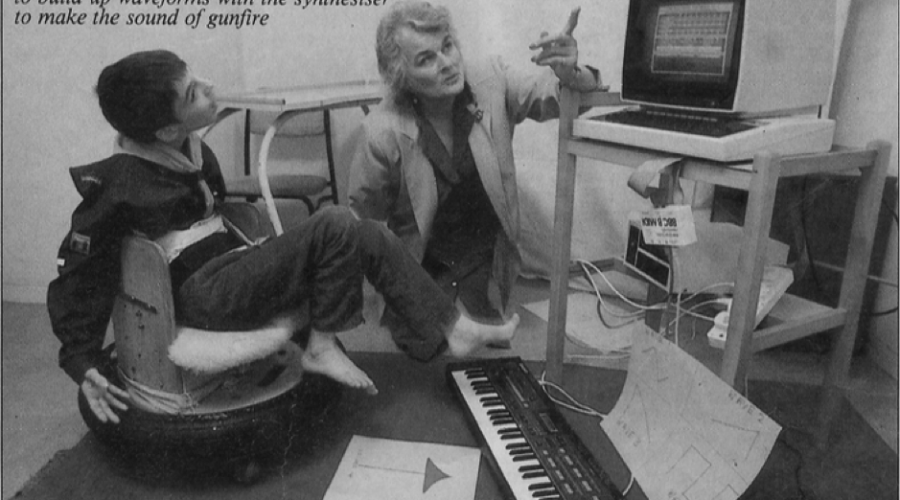Issue 2 – Preview #8: Leon Clowes’ How can you sing a song if you have no voice?
In the mid-1990s, I was the London Project Co-ordinator for Drake Music, a charity pioneering the use of technology to facilitate the music making of disabled people. Back then, the Atari computers we used were cumbersome and the CuBase software frequently crashed and required specialist knowledge to be operated. Twenty-two years later, I am working again for Drake Music and the world has changed dramatically. By interviewing the founder and a sound artist, I discuss and consider with them what has changed and the point reached today.
Three key themes emerge from my research:
- Communication via creativity offers another aspect to the long-standing philosophical debates on if and how music is expressive, given its seemingly abstract form. One of the prohibitive aspects for many disabled people in a non-disabled world is the predominance of verbal communication.
- Activism has changed the voice and visibility of disabled people, and to some extent – most notably through the global televisual event that the Paralympics has now become – attitudes towards what disabled people can do is undergoing a perception shift in mainstream society. Music has a role to play, and therefore, disabled musicians are activists through their creative actions.
- Technology is a facilitator and enabler of many aspects of disabled peoples’ lives. Indisputably, the amount of choice of technological tools has vastly expanded, although many technologies are not necessarily as accessible by default. However, many choices are available, and bespoke solutions are increasingly available for disabled musicians.
A 1987 New Scientist article co-written by the founder of Drake Music is the starting point for this small-scale research, which reflects on the interviews conducted, academic writings and my own observations from the work place.
Read Leon’s full piece HERE


Leave a Reply